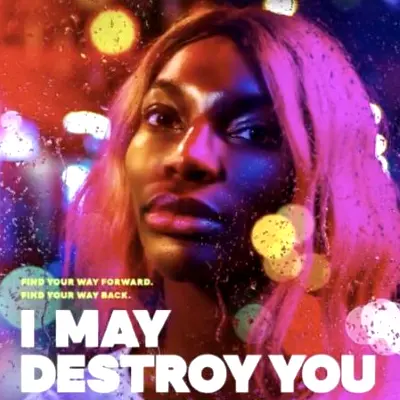Michaela Coel's I May Destroy You offers a complex exploration of a life disrupted by sexual assault
-

"Stories of sexual assault have a disconcerting tendency to flatten out the victim’s personality until they are defined solely by the worst thing that ever happened to them," says Judy Berman. "Some cop shows cycle through a different wounded party, living or dead, in each episode. But even the most sensitive depictions of rape and its aftermath—like the otherwise-excellent Netflix docudrama Unbelievable—end up reducing these characters to points on a grid. On one axis: where do they fall on the spectrum from helpless to empowered? On the other: how credible do they appear? The quadrant they land in determines the story’s outcome. Who these victims, most of them women, were before the attack and who they’ll become in its wake are footnotes If it is indeed easy to forget that rape survivors can contain multitudes, then HBO’s I May Destroy You, premiering on June 7, will make you remember." Berman adds: "This degree of complexity would’ve been enough to distinguish the show from hundreds of earlier representations of sexual misconduct. Remarkably, though, it grows even more ambitious as it continues, without alienating viewers by deploying academic buzzwords or condescending lectures, the way some equally sophisticated explorations of sexuality and trauma (see: Transparent) have."
ALSO:
- I May Destroy You is especially resonant for a survivor of sexual assault: "The new HBO series, debuting Sunday, has been described as a series about consent, but that feels too narrow a rendering for what I May Destroy You is doing — narratively, tonally, and visually," says Angelica Jade Bastién, who can personally identify with Michaela Coel's series. "As Arabella tries to write her second book under the tutelage of pressing literary agents and investigates what happened to her the night her drink was spiked, the show goes down a multitude of avenues in order to explore not just the nature of consent but the dynamics of modern dating and desire itself. The show operates on multiple levels: as a love letter to the power of friendship, as an exploration of the slipperiness of memory and how it informs identity, and as a consideration of the writing life. Coel, who writes, stars in, and occasionally directs the series, once again proves her stunning talent as an artist in the wake of her sprightly British comedy Chewing Gum, about a young woman hell-bent on losing her virginity. I May Destroy You isn’t trying to teach audiences a lesson, but put them on a journey that challenges our assumptions. Each of the 12 30-minute episodes proves adept at wrenching hearts and evoking laughter in equal measure."
- I May Destroy You has a feeling of bracing, uncomfortable immediacy: "Coel's second series as creator-star is marked by its filter-free treatment of sexuality, mockery of social media performativity and cross-sectional examination of a generation trying to find a voice," says Daniel Fienberg. "It's angry and confused in intentional ways, messy and erratically focused in logical ways, and a guaranteed conversation-starter certain to generate equal measures of devotion and abrupt dismissal. Over the 12 half-hour episodes, there were many times I wasn't enjoying the show and several points at which I lost track of narrative threads. But my interest never wavered in the audacious and precarious thing that Coel is attempting."
- Coel captures the difficulty of the healing journey for those who have been sexually exploited: "I May Destroy You showcases the vital role consent plays in one’s agency, and how the lack of it in any act—whether it involves the agreed-upon parameters of a threesome or continued engagement after a previously approved tryst—drastically changes matters," says Shannon Miller. "The way the series treats every example as a serious transgression sets it apart from others that attempt to address abuse without the necessary range."
- I May Destroy You is not a comfortable experience, nor should it be
- It's a weighty, ambitious attempt to wade through incredibly difficult subject matter, but one that also seeks to balance with earnest optimism and a desire for healing
- The phrase “sexual consent drama" makes I May Destroy You sound like an illustrated lecture, but it's anything but
- It cannot be stressed enough that I May Destroy You is about so much more than sexual assault
- Even when I May Destroy You drags, Coel's voice always comes through
- Coel and her razor-sharp cheekbones elevate even the show's weakest episodes, challenging viewers to grab her hand as her character fights to find a resolution in unpredictable ways
TOPICS: I May Destroy You, HBO, Michaela Coel
More I May Destroy You on Primetimer:- Presenting TV's best friendships, from Seinfeld to PEN15 to Insecure
- HBO is leaving Euphoria fans to fend for themselves after "traumatizing" them
- The miniseries has evolved from inside joke to becoming hugely popular in the streaming TV era
- Michaela Coel's Emmys speech dedicated to sexual assault survivors was something rare -- a speech directed at viewers, not attendees
